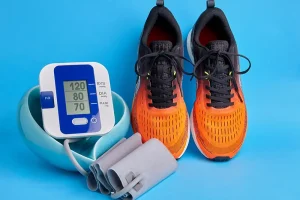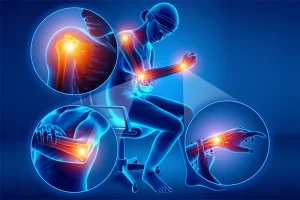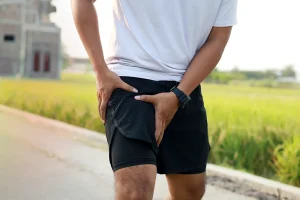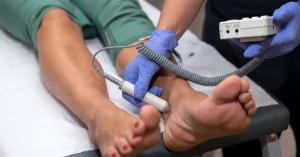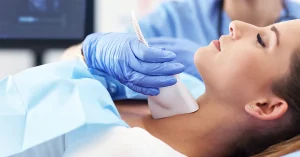Hemorrhoids are swollen veins in the anus similar to varicose veins. They can develop around the rectum (internal hemorrhoids) or under the skin around the anus (external hemorrhoids). Causes include high body weight, sedentary lifestyle, diet, chronic constipation, diarrhea, genetics, pregnancy, heavy lifting, and prolonged exertion. Studies show that three out of four adults experience hemorrhoids occasionally.
Related: What is Hemorrhoidal Disease?
What Should We Do to Prevent Hemorrhoids?
The most effective prevention method is keeping stools soft. Recommended steps include eating fiber-rich foods such as fruits and whole grains, drinking plenty of fluids, ensuring adequate daily fiber intake, avoiding stress, responding promptly to the urge to defecate, and avoiding prolonged sitting on the toilet.
Post-operative care focuses on maintaining stool softness, proper hygiene, and using natural products to aid recovery. Sitz baths are highly recommended as they reduce swelling and relax the sphincter.
How Do You Take a Sitz Bath?
Fill a basin with warm water or water infused with yarrow and chamomile tea. Sit in the water for 10-15 minutes, ensuring it is not hot. Repeat several times daily, especially after bowel movements. Sitz baths reduce swelling and promote relaxation of the anal muscles.
Special Wipes
Use wet wipes designed for hemorrhoid care. Ensure they contain anti-inflammatory substances and are free of alcohol and perfume. They help relieve stinging and itching without irritating the skin. Proper selection prevents aggravation of symptoms.
Cold Compress
Cold compresses numb the area and reduce swelling but should not be overused. Apply to the anus for a maximum of 15 minutes. Large hemorrhoids benefit most from this method. Ice must be wrapped in sterile gauze or a towel and never applied directly to the skin.
High-Fiber Diet
Vegetables, fruits, nuts, and whole grains are essential after surgery. Fiber intake prevents straining and supports bowel regularity. Adequate fiber consumption helps maintain healthy stools. This diet is considered the most effective natural remedy for hemorrhoids.
Softening Stools
Consume sufficient water and fiber rather than relying on laxatives. Laxatives can cause diarrhea and irritate the mucous membrane. Natural stool softeners are available as pills, powders, or capsules. They should be taken under medical supervision.
Aloe Vera
Aloe vera has anti-inflammatory properties that reduce inflammation in hemorrhoids and other skin conditions. It supports natural healing and soothes discomfort. Proper application ensures maximum benefits.
Apple Cider Vinegar
Although sometimes used to reduce itching and pain, apple cider vinegar can burn the skin and worsen symptoms. Doctors do not recommend this remedy. Avoid direct application to affected areas.
Psyllium Husks
Psyllium supplements increase fiber intake and soften stools, making them easier to pass. Consume in moderation to avoid cramps or gas. Adequate water intake is necessary to prevent constipation.
Tea Tree Oil
Tea tree oil has antiseptic and anti-inflammatory properties. It helps alleviate itching caused by hemorrhoids. Proper dilution is important before topical use.
Yogurt, Kefir, and Fermented Foods
Fermented foods provide healthy bacteria essential for digestive function. Probiotics support intestinal health and improve bowel regularity. They complement fiber intake for overall gut wellness.
Alcohol and Spicy Foods Are Prohibited
Alcohol and spicy foods increase venous dilation and worsen hemorrhoids. Hot spices, such as chili or pepper, can further irritate affected areas. Alcohol dehydrates and slows intestinal peristalsis, increasing constipation risk. Avoid consumption if hemorrhoids are present.
Hydrocortisone Cream
Topical hydrocortisone reduces swelling and supports healing. It has local antipruritic and vasoconstrictive effects. Consult a doctor or pharmacist before use.
Cotton Clothing
Wear cotton and loose-fitting clothing. Avoid polyester and tight garments. Scented detergents should be avoided as they may aggravate symptoms.
Can Hemorrhoids Come Back?
Yes, hemorrhoids can recur if your lifestyle and eating habits remain unchanged. Regular exercise and a healthy diet help maintain smooth bowel movements and prevent stool irregularities. Consuming foods high in fiber and drinking sufficient water supports proper digestion and reduces the risk of constipation.
Avoid sitting for prolonged periods to reduce pressure on the rectal veins. Always respond promptly to the urge to defecate, as delaying bowel movements allows the intestine to reabsorb water from the stool, making it harder. Carefully monitor any symptoms and adhere strictly to your doctor’s instructions. Natural remedies can support recovery, but sustainable lifestyle changes are crucial for long-term health.
Request an appointment today to get personalized guidance on preventing and managing hemorrhoids.



